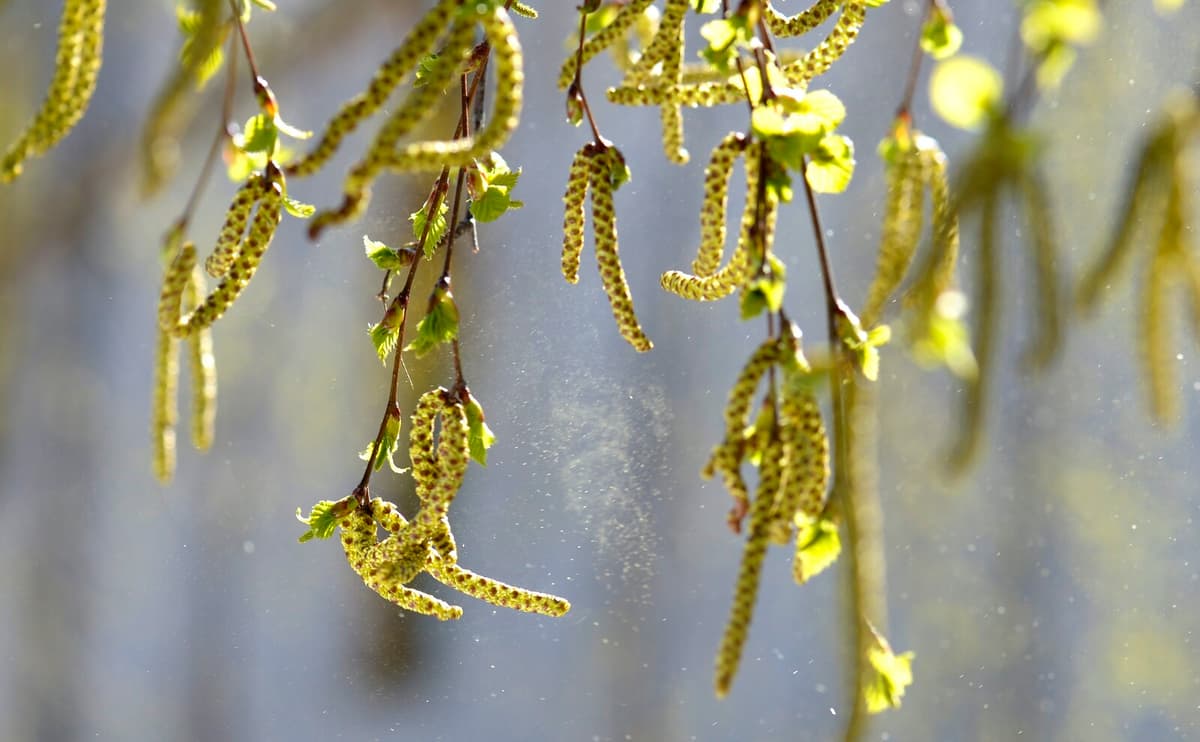The birch is in full flower in many parts of the country and in southern Sweden the flowering has reached its peak – to the distress of many allergy sufferers. The allergy symptoms also risk becoming extra prolonged this year, as the cool start to spring can prolong the season.
The birch and other trees have a limited amount of pollen to release, and when it is warm the release increases, while it slows down in cool weather. Then it comes out a little every day, says Åslög Dahl, biologist and former head of the pollen laboratory at the University of Gothenburg.
If this year's pollen season stands out as particularly prolonged, it's not really possible to determine, Åslög Dahl believes.
The season can vary greatly from year to year and it's difficult to say what is normal, but this year's season is not exceptional.
It is primarily those who are allergic to birch pollen who are affected right now. For oak, willow, and alder, the risk of high pollen levels is low throughout the country.
Those who are allergic to grass pollen, on the other hand, have the worst time ahead of them, with a season that begins in mid-May and stretches over the entire summer.
If it becomes prolonged is difficult to know now, since the flowering has not yet got underway properly, says Dahl.






